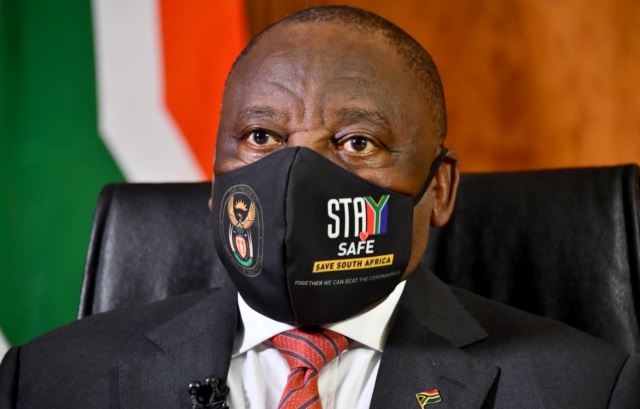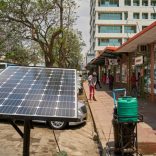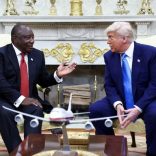Zimbabwe has $9bn plan to join African electricity drive
South Africa’s state of disaster extended into 2021 as Ramaphosa announces local lockdown restrictions

File photo: Twitter / @PresidencyZA
President Cyril Ramaphosa has announced the introduction of localised lockdowns in hotspot areas, in an effort to curb the spread of a second coronavirus wave.
In a national address on Thursday evening (3 December), the president said that despite the progress the country has made, it was always known that a second wave was possible if precautions were not taken.
He said that there is now clear evidence of a resurgence of cases in the country which need to be faced directly.
In the first week of November, the country reported 1,500 new cases of Covid-19 infections each day. By the last week of November, this had almost doubled, with similar increases seen in hospital admissions and deaths.
At last count, the country had exceeded 4,000 cases daily.
President Ramaphosa said three areas account for most of these new infections:
- Nelson Mandela Bay (Eastern Cape);
- Sarah Baartman District (Eastern Cape);
- Garden Route District (Western Cape).
“There are a number of reasons for the rise in transmission,” he said. “Many people are travelling between provinces and within each province in higher numbers, especially with the festive season approaching.”
“In the case of the Garden Route, this also applies to the movement of seasonal workers who work in one province and live in another province.” Social, cultural & religious gatherings are being held in large numbers, Ramaphosa said.
“In many cases these gatherings are often attended by many more people than what is permitted under Level 1 restrictions. What is concerning is that these are also often held in venues with poor ventilation.
“This is particularly the case for funerals, which are often followed by large so-called “after tears” parties,” he said. The president noted that several hospitals in the Nelson Mandela Bay Metro have reported a rise in alcohol-related trauma admissions.
“As we have said in the past these alcohol-related trauma admissions divert capacity that is needed to deal with Covid-related cases.” But by far the greatest contributing cause of infections is that many people are not wearing masks, and are not observing proper hygiene and social distancing.
“We must change our behaviour now,” the president said.
Local restrictions
The president said that the Nelson Mandela Bay is particularly problematic and that the metropole will face additional restrictions from midnight on Thursday (3 December).
In addition to the current level 1 lockdown restrictions, the following restrictions will be introduced:
- Hours of curfew will be from 22h00 – 04h00 except for essential workers and emergencies;
- The sale of alcohol will only be permitted between 10h00 and 18h00, from Monday and Thursday at retail outlets;
- Alcohol use will be banned in public places such as beaches and parks;
- All gatherings, including religious gatherings, may not be attended by more than 100 people for indoor events and 250 people for outdoor events;
- At all times the total number of people may not exceed 50% of venue capacity;
- All post-funeral gatherings are now prohibited.
Nelson Mandela Bay in Eastern Cape has been declared a coronavirus hotspot #COVID19 pic.twitter.com/pgxXF4HqQb
— Department of Health (@HealthZA) December 3, 2020
“These additional measures are necessary to contain the resurgence in Nelson Mandela Bay, to prevent outbreaks resulting from social gatherings and to protect the capacity of the healthcare system to provide care to those who need it,” the president said.
Ramaphosa said that health minister Dr Zweli Mkhize will visit the other two regions of concern in the coming days to assess whether additional restrictions are also necessary for these areas.
He added that the national state of disaster will be extended until 15 January 2021, while additional measures will be introduced in those areas that are identified as coronavirus hotspots.
When identifying a hotspot, the president said that consideration is given to the number of new Covid-19 cases per day, the testing rate within the population, the percentage positivity rate within the population, the number of active cases, the number of hospital admissions and the number of deaths.













Leave a Reply
Be the First to Comment!
You must be logged in to post a comment.
You must be logged in to post a comment.